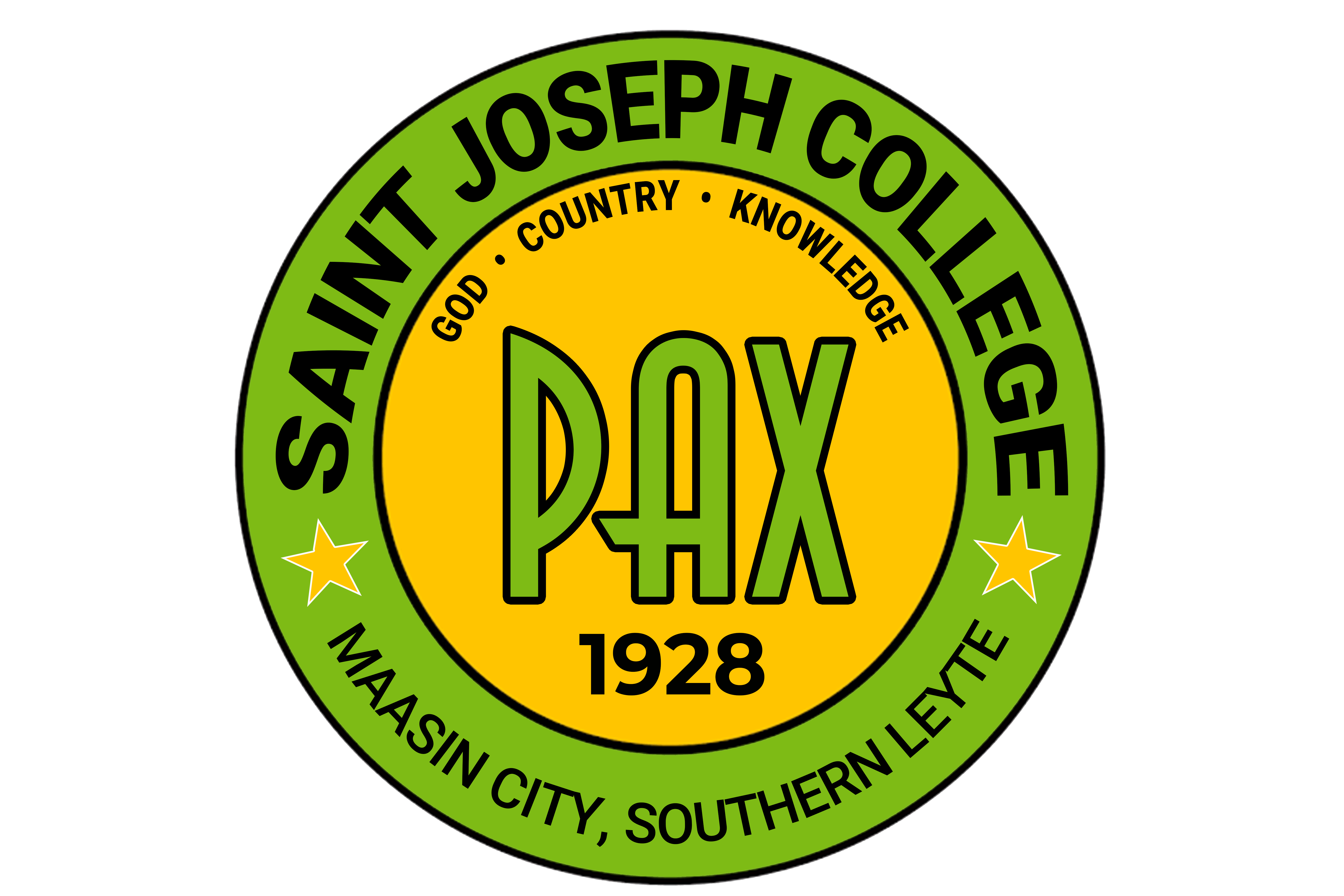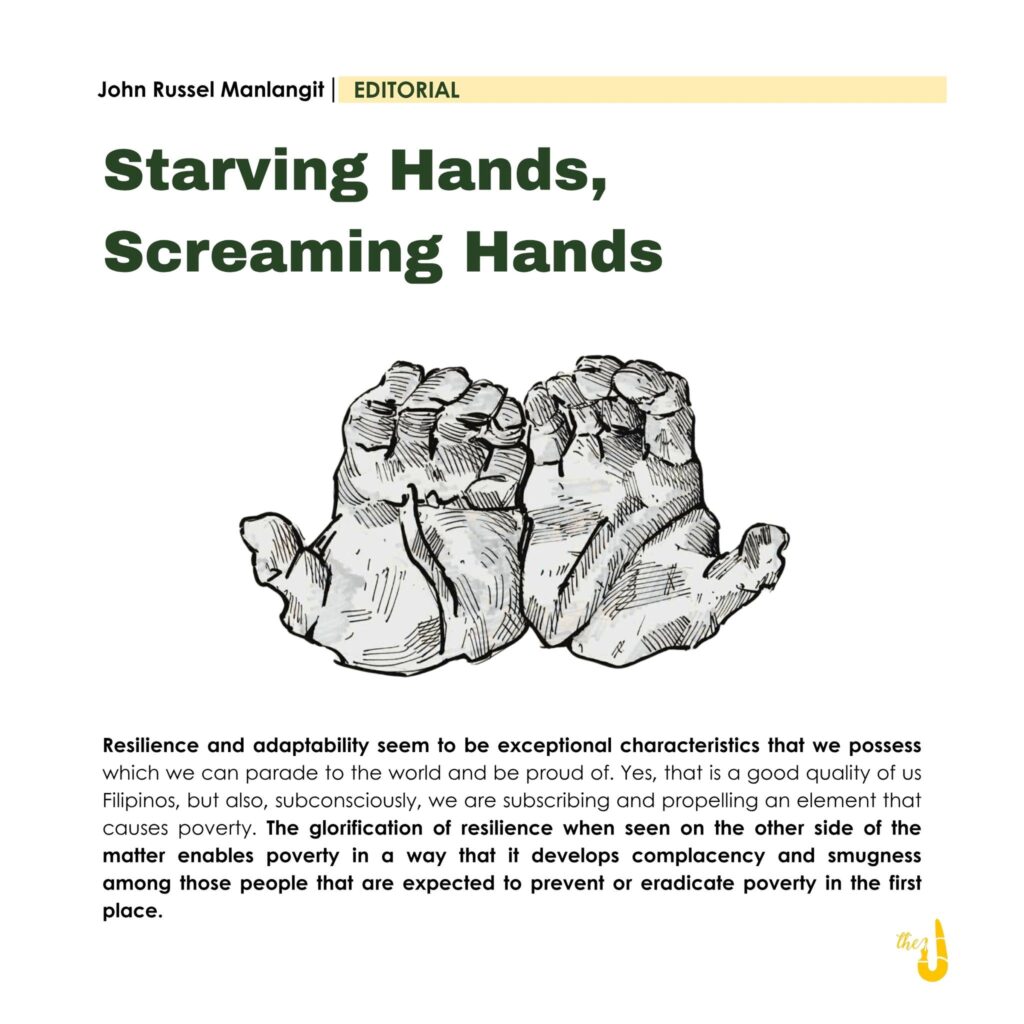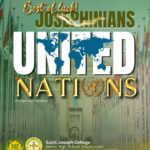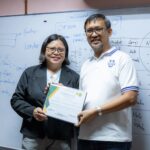No one wants to be poor. No one desires to live in poverty, except for mendicants who chose to live a voluntary life of evangelical poverty. When we hear of poverty, we often imagine financial and material depravity. Although it is the most common of its kind, it is not the only type; dignity and identity are also areas that are to be seen where poverty also thrives yet never seen in the same level as that of income privation.
It is often attributed to us, Filipinos, that even in poverty, we rise up from the condition and still maintain our genteel composure. Resilience and adaptability seem to be exceptional characteristics that we possess which we can parade to the world and be proud of. Yes, that is a good quality of us Filipinos, but also, subconsciously, we are subscribing and propelling an element that causes poverty. The glorification of resilience when seen on the other side of the matter enables poverty in a way that it develops complacency and smugness among those people that are expected to prevent or eradicate poverty in the first place. Our resilience and adaptability springs from our depravity and the hopelessness in situations, where we can never count on an agency, a corporation, even a government; but only on ourselves and our neighbors. It places those in a high pedestal on a still higher ivory tower, where they can only look down on their constituents and expect them to act on their own while they, the privileged, eat the sandwich of preposterous service with its crumbs scattered for the people to catch as though spoils in a time of harvest. Our resiliency in the face of poverty acts as the mask of our suffering, and for those who should serve, a blindfold to the screaming, starving, wrinkled hands of the working class.
Another type of poverty is identity crisis. The great Nick Joaquin once said that “the identity of the Filipino is a Filipino asking what is his identity.” This man, born and raised in a patriotic home asks of us to examine what we are as Filipinos. This is a type of crisis that does not need financial depravity. This type of poverty also acts as the cancer of the nation; eating up those things generations past held dear that placed the nation in high esteem as its identity, slowly replacing it by new ideologies spread by ideologues thinking dogmatically that their newfound discoveries of the old pre-colonial society is what we really are as a nation. It is a crisis of identity and national dignity. A poverty that destroys the nationhood, replacing accepted norms with new ideas, and thinking that deviating is a lot better than following the normal, while the truth is that they are deviating for the sake of deviation.
To discuss this cultural and identity crisis is not for us to bicker and debate in such a short strip of an article. The purpose is to wake up from the deep sleep of “Filipino Pride” because often, this type of pride leads us to forget that there are people assigned and elected to take care of us, Filipinos.
While starving hands ask for material abundance and screaming hands ask for the recuperation of an identity, may we, as a nation, eradicate all these together by standing up for what is true, right, and just.
For the less fortunate. For the Nation. For a better, brighter tomorrow.
#InternationalDayfortheEradicationofPoverty
___
Words: John Russel Manlangit | The Josephinian
Art: Denver John Cinco | The Josephinian




